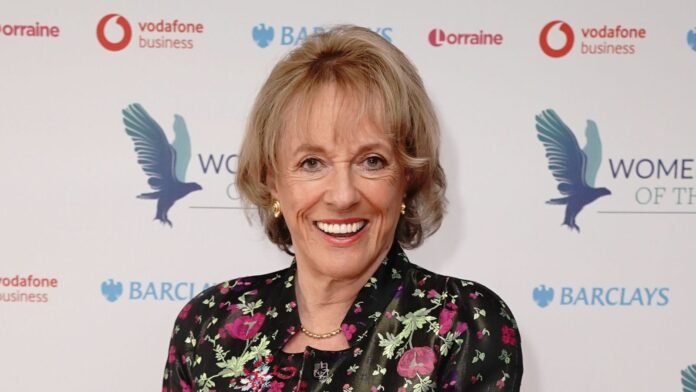A Cabinet minister has said he “would not be averse” to a new parliamentary debate on assisted dying after Dame Esther Rantzen called for a free vote on the subject.
Dame Esther, 83, who has stage four lung cancer, revealed earlier this week she had joined the Dignitas assisted dying clinic.
The Childline founder and broadcaster said during an interview with the BBC’s The Today Podcast she feels it is “important that the law catches up with what the country wants”.
Her family could currently be prosecuted if they were to travel with her to a Dignitas clinic.
A free vote means MPs and members of the House of Lords are not put under pressure to vote a certain way by their party.
Assisted suicide is banned in England, Wales and Northern Ireland and carries a maximum prison sentence of 14 years. In Scotland, it is not a specific criminal offence, but assisting the death of someone can leave a person open to murder or other charges.
Mel Stride, the work and pensions secretary who was among 27 Conservative MPs to vote for a bill to legalise assisted dying in 2015, said he thought some MPs may be wondering “whether this should be something we look at again”.
The 2015 bill was defeated by 330 votes to 118.
Mr Stride told the BBC’s Today Programme: “The government has not decided to bring forward legislation, but if Parliament in some form or another decided that it wanted to have a fresh look at this, given it was some years ago that we last did so, that’s not something that I would be resistant to.”
He follows Housing Secretary Michael Gove, who said on Tuesday he thought it was time for another parliamentary debate on the issue.
Read more: MP says current law on assisted dying robbed him of time with his father
‘Incredibly emotional’ issue
Health Secretary Victoria Atkins declined to give her personal view on whether there should be a vote on legalising assisted dying, but said she recognised how “incredibly emotional” the issue is.
Asked if it was time for another vote, Ms Atkins told reporters: “This rightly is a matter for Parliament and for members of Parliament. It’s a matter of conscience.
“I feel very honoured to be the secretary of state for health, but I’m also very aware of the responsibility that brings and so it must be for Parliament, it must be for individual members of Parliament. And I shouldn’t be, I can’t be, drawn on my own views because I wouldn’t in any way want to pre-empt that discussion.”
‘Agonising to watch someone you love suffer’
Dame Esther called on MPs to think of their loved ones and the peaceful end they would wish them to have.
“It is agonising to watch someone you love suffer. Nobody wants that for their family. And we live in a day and age when it’s perfectly possible to offer people a gentle, peaceful death,” she told the PA news agency on Wednesday.
The prime minister’s official spokesman has said the government’s position has not changed so it remains a matter for parliament to decide and “an issue of conscience for individual parliamentarians rather than government policy – as it was in 2015 when the House considered it and rejected making any changes”.
The Health and Social Care Committee is due to publish its report into assisted dying and assisted suicide in England and Wales, having launched an inquiry in December 2022 to examine different perspectives in the debate.
Source : Sky News






